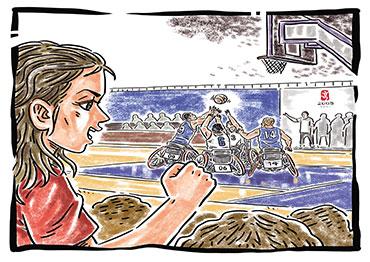t a dinner during the Chinese New Year holidays with some old colleagues, we fell to reminiscing about the previous time Beijing had hosted an Olympic Games.
In those heady years of the early noughties, it seemed like anything was possible, and that those summer Games of 2008 would be a sort of punctuation point in my China life. Never did I imagine that Beijing would be a Winter Games host – despite the freezing winters, it’s never been known for much snowfall – but more importantly, that I would still be living here. Of course, the pandemic has had something to do with that – unable to leave for over two years, that is, one can leave, but not return – life has been put somewhat on hold, plans stagnating and gathering more dust than the city in a spring sandstorm.
My friends and I all thought those 2008 Games to be too much hassle, once the pleasure at seeing Beijing actually win its bid had worn off – I actually missed that, I was on an overnight train, hard sleeper, from Xi’an to the western city of Lanzhou, Gansu Province. I don’t remember where I was when Beijing won the Winter Games bid.
The city was undergoing a much-needed facelift in that decade. It’s hard to remember now that there were only two subway lines until 2007, when Line 5, the third one, opened. I went for a trip on the first day, along with excited train fans, who lined up at Yonghegong Station to get commemorative tickets signed by what was presumably a senior subway official. It wasn’t until right before the Games that a few other lines opened, and the train to the international airport. It’s hard to keep track of how many lines there are now that Beijing has the second-longest subway network in the world, with 25 lines, second only to its municipal rival Shanghai.
The main problem with the Summer Olympics for us expats was not procuring a ticket to events, but procuring visas for long enough to stay. Many people left for good at that time, finding it too difficult and too expensive. Along with many others, I was in and out of Hong Kong several times, and once went to North Korea, although that trip was more to spend the money I’d earned from a local magazine to write content for the Games. A security guard from my residential compound came knocking on the door with my name written on a scrap of newspaper, confirming that it was indeed my name, and I did indeed live there.
Feeling above all that Games nonsense, I decided to only apply for tickets to the Paralympic events. I thought rightly, I’d have no chance of getting in any of the ceremonies for the main Games, but figured fewer people would apply for the Paralympic opening and closing. I applied for both, and was astonished to receive tickets for both.
But when it came to the Games actually starting, it was hard not to get swept up in the atmosphere – especially the uncharacteristically clean sky and the unclogged traffic that lasted for several weeks. We found we could score expensive tickets to sold-out events if you had a Visa card, one of the sponsors. I decided to splash out on a ticket for the athletics at the Bird’s Nest, and was rewarded with seeing Usain Bolt storm to his gold medal in the 200 meters.
The Paralympic events were even more exciting – Murderball anyone? That’s wheelchair rugby to everyone else. Blind football, cycling, wheelchair basketball – they knock the socks off regular events. Plus the traveling supporters were super friendly and so excited that for the first time, Paralympic athletes were performing in packed-out venues.
But the slightly down-at-heel Beijing of those days is no longer in evidence. The old hutong at the heart of the city which played host to so many hole-in-wall bars and restaurants, with plastic chairs and tables smooshed together on the street, surrounded by cracked sunflower seed shells are no more, and the bars and restaurants are not attracting the big crowds of old to watch the Games communally. Perhaps social media plus the pandemic have played a part, but it is harder to get excited when the average daily temperature is below zero.
Not that people didn’t try. As usual when there is a big event in Beijing, all the stops were pulled out to ensure the skies were blue. On Lunar New Year’s day, I walked around the frozen lakes in the center of old Beijing, which were full of skaters, toboggans, even ice hockey players. The view was astonishing – further than the new skyscrapers of the business district, out to the mountains of the west. Some curious people nosed in the Winter Olympic souvenir shop. If they’d known how popular the chubby Bing Dwen Dwen mascot would become as the home team racked up the medals, they would have snapped him up.
It would have been nice to have recaptured the atmosphere of those Summer Games again. I’m sure the staff, athletes, reporters and volunteers locked in the Games bubble would appreciate seeing what’s become of Beijing. For now, we’ll have to wait until it’s all over if we want to see where Beijing hosted its second Olympics.

 Old Version
Old Version